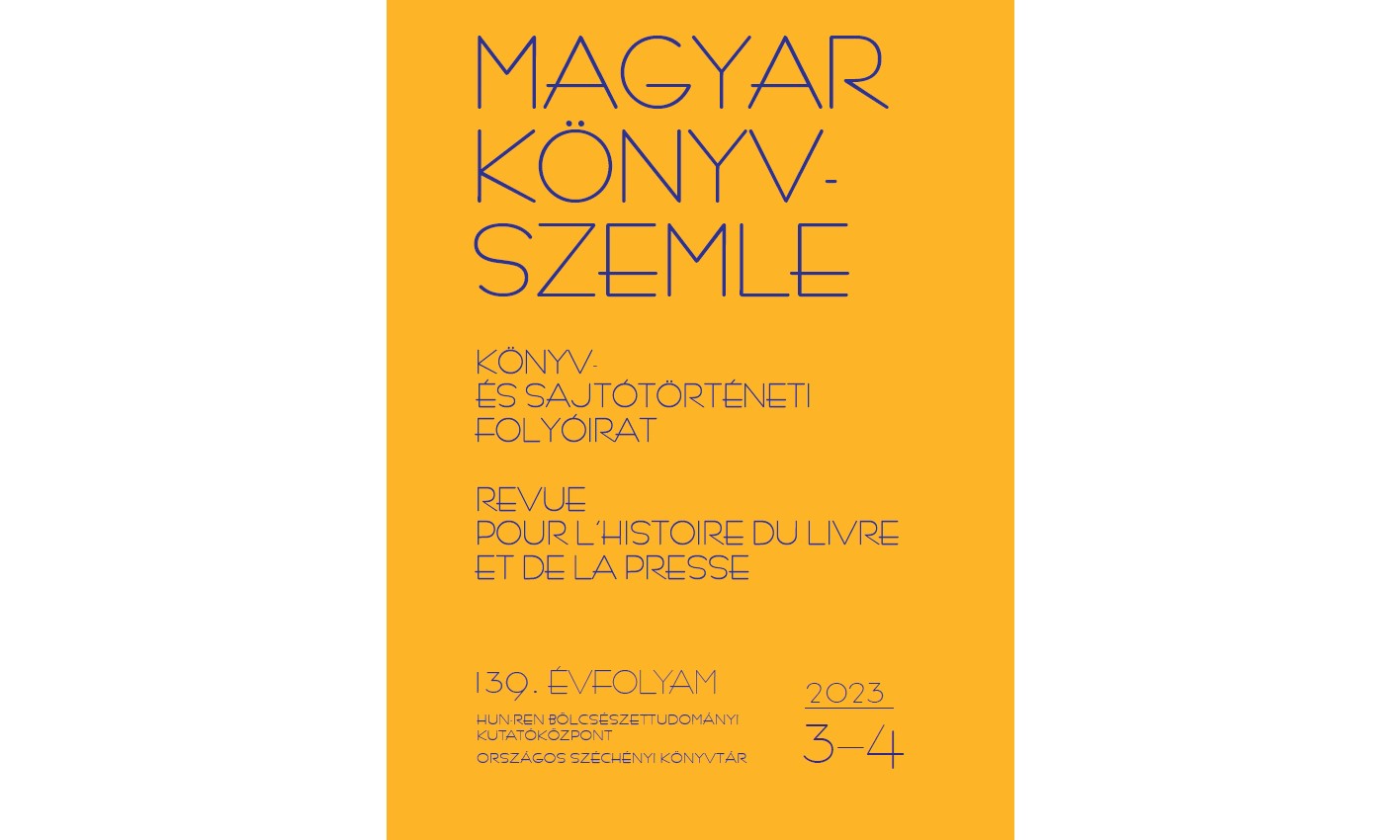Thematization of the news of the “November Uprising” in the “Erdélyi Híradó” and “Jelenkor” reform-era newspapers
Investigative methodological possibilities for thematization of news, news value and public opinion in the newspapers of the reform period
Abstract
My study aims to depict the journalistic method of news editing and thematization in the reform era Hungarian-language press, in the light of the news of the Polish national uprising in the issues of “Erdélyi Híradó” and “Jelenkor” published between 1830–1832. About the “November Uprising” that broke out in Warsaw on November 29, 1830, which turned from an armed conflict into a war between Poland and the Russian Empire between 1830–1831, the reform-era Hungarian newspapers published in the first half of the 1830s, which I included in the analysis of political discourse (Jelenkor, Erdélyi Híradó) limited by the possibilities provided by censorship, tried to report until the Polish national uprising was drowned in blood. In connection with the examination of the foreign policy news material used by news editors during the reform period and edited in the newspaper, in addition to the analysis of the content, it is necessary to examine the manner of speaking, the short comments attached to the news, as well as the selection of the news and the attempts to thematize the political messages. In my study, I show that although in the foreign policy news of the Hungarian newspapers I examined in the 1830s, Poland received the least amount of attention in terms of neighbouring countries, however, in addition to the reports coming from the immediate Polish territories, among the English, French, German, and Russian news, the situation in Poland and Polish emigration can be found selected from Western European and Viennese newspapers.



